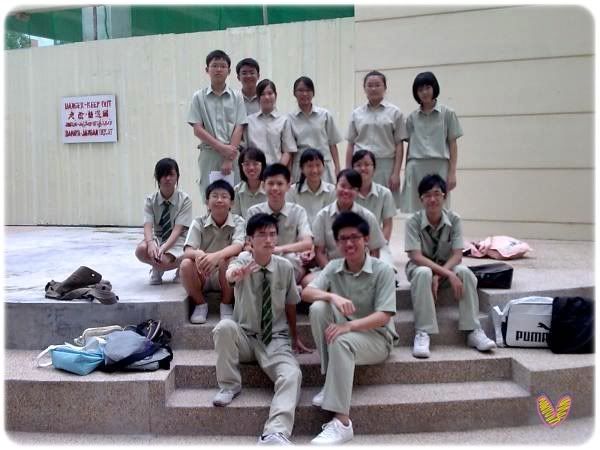 |
||
|
Friday, June 22, 2007
halo... after co camp le veri tired hor... the sec4s graduated from co liao leh... so i asked xiao ming(pohliba)(g^2sx)(yong3 bu4 yan2 bai4).... what motivated him from escaping from co?? den i gave him some ans tt he sae no... red=xiao ming, green=mii... izzit becoz last yr the sec1s cum actually no lol loli noe! becoz u gt the best sheng no lah when i go tht sheng, the few practices after that i also nvr come wad. haa. ya hor i noe coz u guilty u get new sheng den u still dun cum no lah actually is becos.. i got scolding so many times until i lazy to hide already. haha. plus i guilty.. not bcos of sheng lah but becos althoh i very slackish but ms ho stil nvr give up on me ahaha and also becos of hf zd and py cause i quite close with them in gy mah.. so with them, co not so sian lor tts xiao ming's ans... i asked him tis qns coz i still rmb jingxiong sae cedric rotted for the first 2yrs... but he became G^2SX... without him around gy would b more sian... cedric's very important in gy... everyone in gy is important too... btw yt was in the conversation n she was stoning... OHYA...CEDRIC...THX FOR THE GIFT... ohya we wanted another gy outing... cedric suggested to go to Uncle Ringo... he sae its at Bishan n its on the evening... erm... the date.. maybe on next fri the 29 of june... its a funfair... starts at the start of the month to 1st july... who wants to go!! tag on gy blog... ~tricia =P
PRSS g.y blows at 3:07:00 PM. |
The GUANYUERS
GY CRAVES more bonded♥[unity] GY LINKS
GY CHATTERBOX
Our Instruments Dizi 
Three main types of dizi are frequently used in the wind section: the bangdi, the qudi, and occasionally the koudi. The bangdi is shorter in length and smaller in diameter and produces a clear and bright tone. It is frequently used in bangzi opera of Northern and southern China, hence the name bangdi. The longer and thicker qudi produces a richer and mellower tone. The qudi is usually a fourth higher in pitch than the bangdi. The koudi is the highest-pitched of all dizis.
Sheng


The sheng is a Chinese free-reed bamboo mouth organ. The earliest type ever recorded in history had 14 pipes and was discovered in Zeng Houyi's tomb in Hubei province. The most common types of sheng today include a 17-pipe instrument and a modified version for contemporary compositions, which has an expanded range of 21-37 pipes. The tone of the sheng is lucid and bright. It has a huge range, a chromatically complete scale and is able to produce chord voicings.
Suona
 The tone produced by suona is loud, piercing and uplifting, thus it is usually used to perform vibrant and lively pieces. However, its repertoire also includes some mellower pieces. The suona is commonly used as an accompaniment in the Chinese opera, singing or dancing, but also for more sombre occasions, such as during a traditional Chinese funeral procession. It is also utilised in solos or ensembles for various occasions and ceremonies. | |